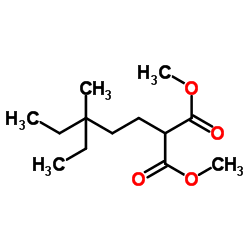Newborn yaks suffering from meconium retention, also known as meconium impaction or "no meconium," face a serious health risk if not addressed promptly. Normally, calves should pass their first feces—meconium—within a few hours after nursing colostrum. Colostrum is rich in magnesium salts, which help stimulate intestinal peristalsis and have a mild laxative effect, aiding in the passage of meconium. If a yak fails to pass meconium within 24 hours and shows signs of abdominal discomfort, it may be suffering from meconium constipation. Delayed treatment can lead to severe toxicity and even death.
The causes of this condition are varied. Poor management of the mother cow during pregnancy, especially inadequate nutrition in the last trimester, can result in low-quality or insufficient colostrum. Calves that are weak, underdeveloped, or born with digestive issues are more prone to this problem. Additionally, improper hydration—such as providing milk instead of water—can contribute to constipation in newborn yaks.
Clinically, affected calves display signs such as arching their backs, lifting their tails, restlessness, frequent straining, and attempting to kick their abdomen. A rectal examination often reveals hard, dry fecal matter. The mouth is dry, the tongue is red and cracked, and bowel sounds are reduced. These calves may refuse to nurse, appear weak, and show general lethargy. Without timely intervention, they can develop autointoxication and die.
Prevention is key. Ensuring proper nutrition for pregnant cows, especially in late gestation, helps produce high-quality colostrum. Calves that are too weak to nurse on their own should be assisted with artificial feeding. This proactive approach significantly reduces the risk of meconium impaction.
Treatment involves several methods. First, a warm soapy water enema is administered using a soft rubber tube inserted about 10 cm into the rectum to remove initial stool. A deeper enema with the same solution, inserted 30–40 cm, is then given. If necessary, the process can be repeated after 2–3 hours. Liquid paraffin or vegetable oil (300 ml) can be used to lubricate the intestines. A mixture of 50 grams of sodium sulfate, 500–1000 ml of warm water, 50 ml of oil, and 2–3 eggs can also be administered to clear the gut.
For physical removal of the blockage, the vet may gently insert an oiled finger into the rectum to break up the fecal mass, being careful not to damage the delicate lining. Two subsequent enemas are recommended afterward. To stimulate peristalsis, a small dose of strychnine sulfate (3–6 ml) or 200–300 ml of 3% hydrogen peroxide may be injected intramuscularly.
Traditional remedies include a mix of 75 grams of honey and 75 grams of saponin, cooked slowly until thickened into a brown paste. This is formed into a rod and inserted into the rectum. For severe pain, analgesics may be used. In cases of dehydration, intravenous fluids like normal saline or sugar saline (300–500 ml) combined with 5–10 ml of 20% sodium benzoate can be administered.
Surgical intervention is considered when other treatments fail. Laparotomy allows direct access to remove impacted feces. Post-operative care is essential to ensure recovery and prevent complications. Early detection and prompt treatment are crucial for the survival of affected calves.
solubility H2O: 50 mg/mL
form powder
color Dark cream powder
Odor Odorless
PH 6.5-7.5 (2% in H2O)
Water Solubility Soluble in water. Insoluble in alcohol.
Sensitive Moisture Sensitive & Hygroscopic
EPA Substance Registry System Peptones (73049-73-7)
Peptone Basic Information
CAS: 73049-73-7
MF: C13H24O4
MW: 244.32726
EINECS: 615-895-9
Mol File: 73049-73-7.mol
Peptone Structure

solubility H2O: 50 mg/mL
form powder
color Dark cream powder
Odor Odorless
PH 6.5-7.5 (2% in H2O)
Water Solubility Soluble in water. Insoluble in alcohol.
Sensitive Moisture Sensitive & Hygroscopic
EPA Substance Registry System Peptones (73049-73-7)
Peptone Water,Peptone Composition,Peptone Water Composition,Peptone Meaning,Peptone Water Preparation
Shandong YingLang Chemical Co.,Ltd , https://www.sdylhgtrade.com